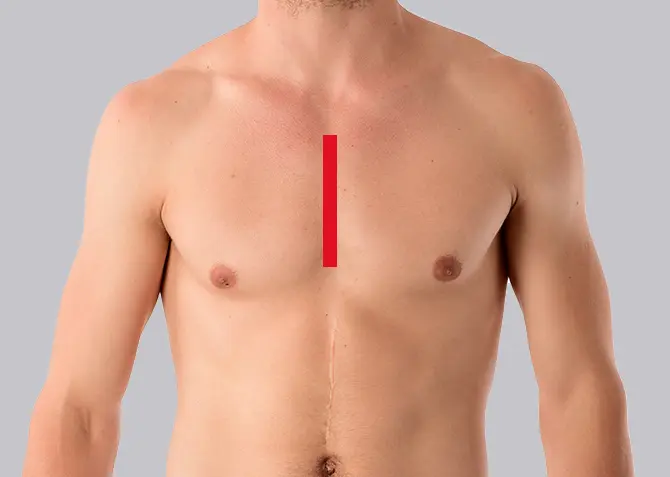Minimally Invasive Coronary artery bypass Surgery
Unlike classical open coronary bypass surgery, this operation is performed with small incisions. The greatest comfort it provides to the patient is that it heals faster and with less pain. Although it is possible to perform this surgery with a smaller bone incision without fully opening the sternum bone, coronary artery bypass surgery with left mini thoracotomy, which has been used more frequently in recent years and which we think is more comfortable for the patient, is quite frequently preferred. The most important difference of this operation is that the sternum is not cut. No bone incision is made during the operation. The operation is performed by entering through the 4th or 5th intercostal space.
The saphenous vein from the patient's leg, the radial artery from the left wrist, and the mammarian artery through the thorax are used as grafts. These grafts are anastomosed to the coronary vessels. In these surgeries, the heart is usually stopped and a heart-lung device is used. This device provides circulation when the heart and lungs are not working. There is a responsible healthcare professional using this device.
This operation can also be performed on the beating heart without stopping the heart and without using a heart-lung machine. In this case, we call it Beating heart coronary artery bypass surgery.
These surgeries are performed under general anesthesia. Generally, there is an operation time between 4-8 hours. After surgery, the patient is taken to the cardiac surgery intensive care unit. Here he is followed by the cardiac anesthesiologist and cardiac surgeon. After the operation, patients wake up 2-4 hours later and leave the ventilator 4-6 hours later. On the night of the operation, the patient is mobilized in the intensive care unit. It goes into service the next day. The patient is discharged 3-4 days after the operation.
After Coronary Bypass surgery, the patient uses various blood thinners such as aspirin and Clopidogrel as blood thinners. Since the sternum bone is not cut in this technique, sternum wires, which will remain in the patient's body for life after the operation, are not used.


